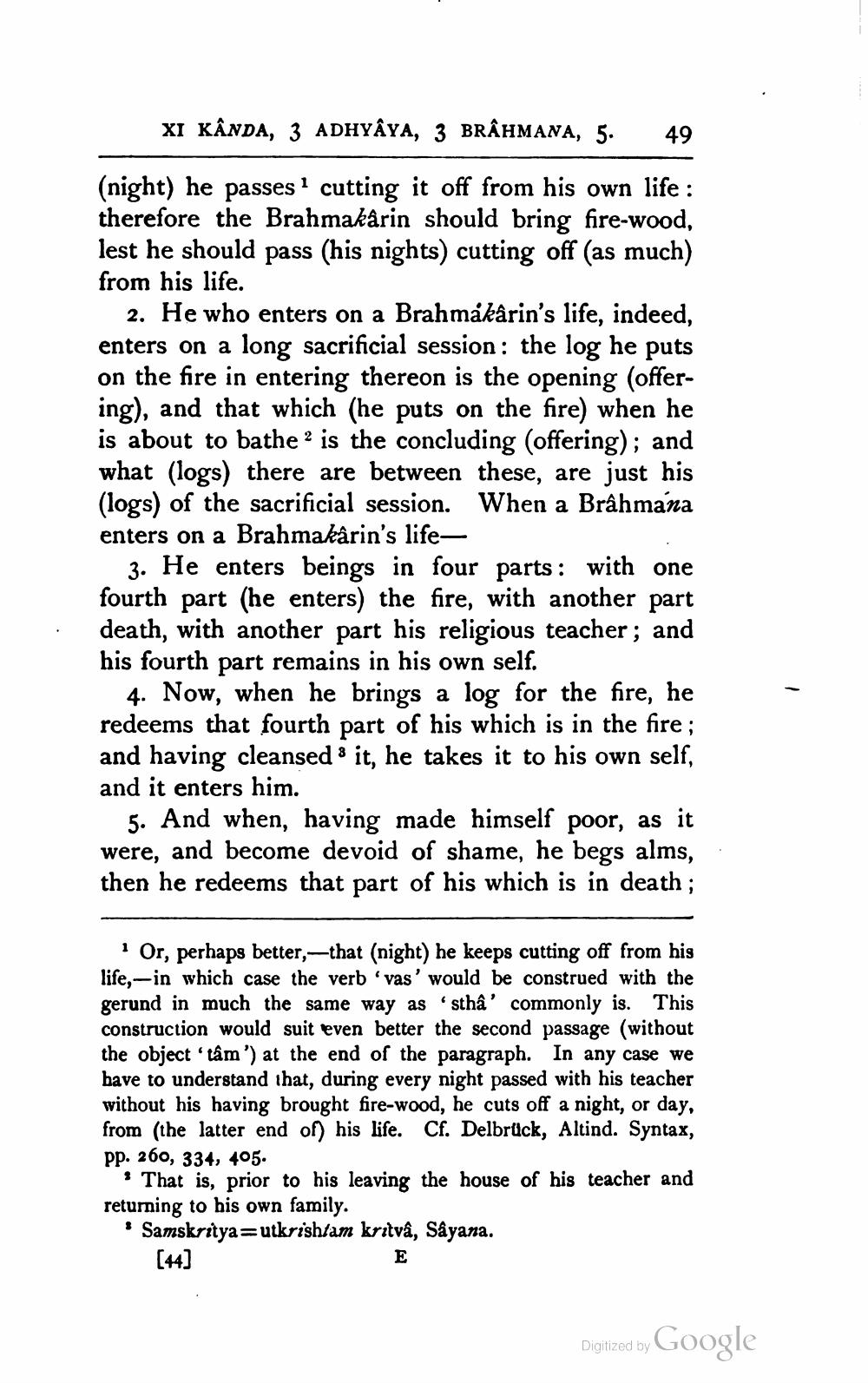________________
XI KÂNDA, 3 ADHYAYA, 3 BRAHMANA, 5. 49
(night) he passes1 cutting it off from his own life: therefore the Brahmakârin should bring fire-wood, lest he should pass (his nights) cutting off (as much) from his life.
2. He who enters on a Brahmakârin's life, indeed, enters on a long sacrificial session: the log he puts on the fire in entering thereon is the opening (offering), and that which (he puts on the fire) when he is about to bathe is the concluding (offering); and what (logs) there are between these, are just his (logs) of the sacrificial session. When a Brahmana enters on a Brahmakârin's life
3. He enters beings in four parts: with one fourth part (he enters) the fire, with another part death, with another part his religious teacher; and his fourth part remains in his own self.
4. Now, when he brings a log for the fire, he redeems that fourth part of his which is in the fire; and having cleansed it, he takes it to his own self, and it enters him.
3
5. And when, having made himself poor, as it were, and become devoid of shame, he begs alms, then he redeems that part of his which is in death;
1 Or, perhaps better,—that (night) he keeps cutting off from his life, in which case the verb 'vas' would be construed with the gerund in much the same way as 'sthâ' commonly is. This construction would suit even better the second passage (without the object 'tâm') at the end of the paragraph. In any case we have to understand that, during every night passed with his teacher without his having brought fire-wood, he cuts off a night, or day, from (the latter end of) his life. Cf. Delbrück, Altind. Syntax, pp. 260, 334, 405.
That is, prior to his leaving the house of his teacher and returning to his own family.
'Samskritya utkrishtam kritvâ, Sâyana.
[44]
E
Digitized by
Google




